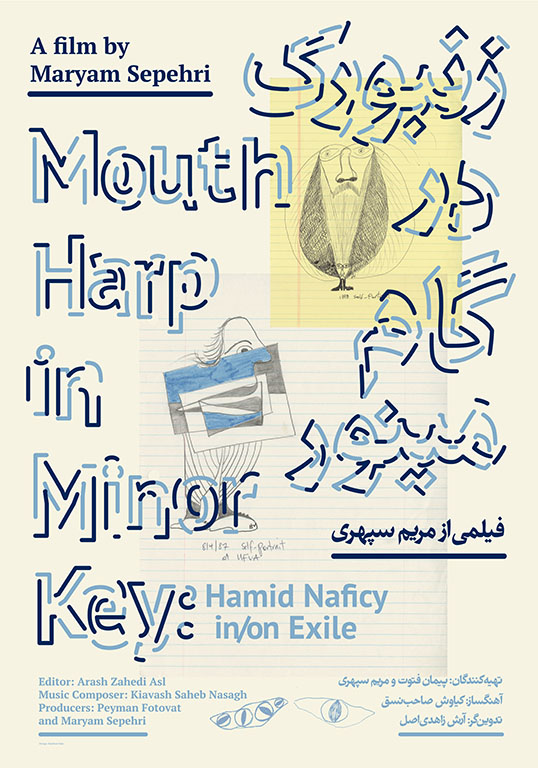Mouth Harp in Minor Key: Hamid Naficy In/On Exile
For Iranian scholar Hamid Naficy, exile is like an elevator that runs between “two cultural poles, two memories, two lives.” Naficy belongs to the Iranian generation that lived through the modernization of the country that preceded the Islamic Revolution of 1979, and the Islamization that followed it. Like many Iranians who were studying in the United States universities when the revolution began, he chose not to return to Iran.
Both bilingual and bicultural, Naficy is known for conducting penetrating analyses of both the rich cultural heritage of his homeland—his roots—and of the fecund terrain of exile in his adopted land—his routes. In his adopted country, he became a professor at Northwestern Univerisity, published author, filmmaker, leading expert in diaspora studies, exile, and postcolonial cinema, as well as a husband and father. At the same time, he managed to keep a close link to Iran, his culture, his family and more importantly, his mother.
Iranian filmmaker Maryam Sepehry followed both Hamid Naficy in the United States and his family in Iran to capture a documentary portrait that packs a powerful punch elucidating the complexities of personal identity in a globalized world, where individual, national, and transnational forces interact. A timely documentary film about exiles in America and the families they left behind, MOUTH HARP IN MINOR KEY sheds light on the dynamics of our contemporary times, beset by globalization and consolidation of capital and media, on the one hand, and by fragmentation and disruptions of nation-states, on the other.
